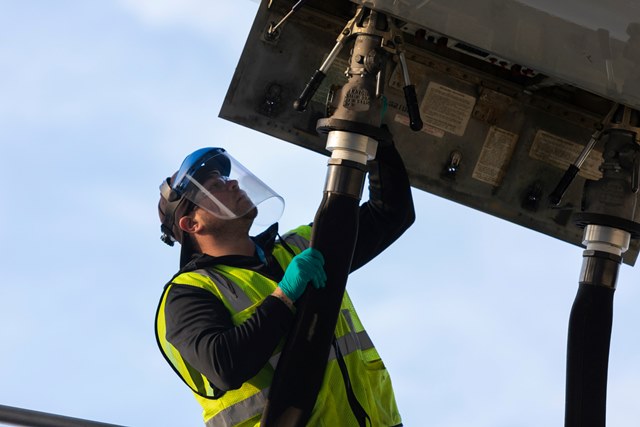Boeing’s record SAF purchase supports airlines decarbonisation efforts

People familiar with the situation say the development can be beneficial for Africa, because it has the potential to drive global demand, reduce cost and increase access to SAF
Boeing is also supporting projects to produce SAF in Ethiopia and South Africa
US aerospace and defense giant Boeing, announced its largest purchase ever of sustainable aviation fuel SAF April 16, taking 35.6 million litres (9.4 million gallons) for its operations during 2024.
The blended fuel, 30pc SAF made from waste by-products such as fats, oils, and greases and 70pc conventional jet fuel, will support the Boeing ecoDemonstrator program and Boeing U.S. commercial operational flights. However, nearly two-thirds of the purchase will be made available for purchase by commercial airlines at selected airports in the US, as one of Boeing’s initiatives to support the airline industry’s carbon transition.
The huge volume, which is 60pc larger than Boeing’s SAF purchases for 2023, will in part be supplied by Epic Fuels and Avfuel with both companies getting their suppliers from green fuels manufacturer Neste. Epic Fuels will supply 2.5 million gallons from Neste, while Avfuel will provide 1.5 million gallons with both suppliers delivering the SAF blend into Boeing’s fuel farms in the Pacific Northwest.
Additionally, Boeing will also purchase the CO2 emissions reduction associated with 5.4 million gallons of blended SAF through an accounting process called book-and-claim. Book-and-claim is when a company purchases SAF certificates to displace conventional jet fuel. Instead of putting the fuel into a Boeing fuel farm, distributors will deliver it to nearby airports for use by airlines and other carriers.
Through Boeing’s book-and-claim purchases, EPIC Fuels will supply 3.5 million gallons of blended SAF made by Neste, while World Fuel Services, a World Kinect company, will supply 1.9 million gallons from World Energy.
“As our focus remains on safety and quality, sustainability continues to be a priority,” “Sustainable aviation fuel is essential to decarbonize aviation. About 20pc of our fuel usage is a SAF blend, and we continue to increase our use of this fuel to encourage growth in the SAF industry. We are also working to make SAF more available and affordable to our commercial airline customers through collaboration, investment, research and policy development,” said Ryan Faucett, vice president of environmental sustainability at Boeing.
Analysts said the development was crucial, because it has the potential to drive global demand, which, in turn, can significantly impact Africa. Boeing works with partners on six continents to research, develop and commercialize new sources of SAF, including projects in both South Africa and Ethiopia.
Unblended, or “neat” SAF, can reduce carbon emissions up to 85pc over the fuel’s life cycle and offers the commercial aviation industry’s greatest potential to reduce its climate impact over the next 30 years.

 African Heads of state head to South Korea next week for Summit talks
African Heads of state head to South Korea next week for Summit talks
 Trading leads as main source of income for Ugandans
Trading leads as main source of income for Ugandans
 New leadership for bankers’ umbrella as total assets top $12 billion
New leadership for bankers’ umbrella as total assets top $12 billion
 Brussels Airlines to announce Nairobi service
Brussels Airlines to announce Nairobi service
 SITA promises enhanced travel experience after Materna acquisition
SITA promises enhanced travel experience after Materna acquisition
 Saudia’s 105 aircraft order stretches A320neo lead over rival Max
Saudia’s 105 aircraft order stretches A320neo lead over rival Max
